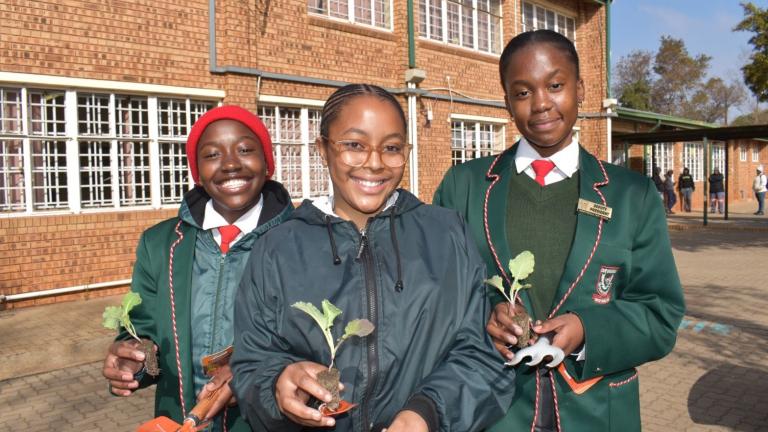Nourishing Community: United Way South Africa's Transformative Approach to Food Security

In South Africa, hunger often aligns with social and economic inequality. Of nearly 17.9 million households in the country, a troubling 15% face inadequate access to food; another 6% experience severe food inadequacy. These conditions are exacerbated by South Africa's ranking as one of the world's most economically disparate nations, a status worsened by the Covid 19 pandemic. United Way South Africa (UWZA), cognizant of these persistent issues, has developed interventions that transcend basic handouts. Its food security efforts incorporate a nuanced understanding of factors contributing to food insecurity, ranging from poverty and joblessness to systemic racial discrimination and health concerns.
Collaborative Initiatives
One flagship UWZA effort is its Urban Agriculture Program, developed in partnership with diverse stakeholders. The program aims to transform emerging smallholder farmers into sustainable agribusinesses supplying fresh produce to grocery stores, restaurants and corporations. The initiative not only tackles food insecurity but also mitigates unemployment and encourages self-sufficiency among marginalized communities. It emerges out of the country’s tradition of racial equity that seeks to advance local farmers from sharecropping status to agricultural production. A sentiment that lives in the work UWZA does. Speaking at the Partnership Establishment of Agro Processing Exhibition in Soweto, Member of the Mayoral Committee for Social Development in the City of Johannesburg Ennie Makhafola notes that, “Agro processing is about breaking the chain of poverty in our communities. Land too, is very key to food security agenda. We call upon all major retailers to provide markets and access to our Agropreneurs.”
Multifaceted Impact
The program's impact extends beyond food production to community well-being. UWZA further integrates farming initiatives with educational programs. Through its long-standing Youth Success Program, the organization supports school food gardens, improving meal nutrition for students. The benefits are manifold. Students gain essential nutrients, bolstering their focus and academic achievement. Additionally, the gardens serve as communal centers, promoting collaborative learning and environmental stewardship. Former student Lisaphila Faye says, “United Way didn’t only support us with education at Grade 12. They also provided fresh food and nutritious meals, which was very helpful and motivated us to attend classes, as most of the times we left our homes early without eating anything, knowing that we will find something to eat after school from United Way extra classes.”
Sustained Commitment and Future Goals
UWZA's ongoing support and evaluation ensure the sustainability of these interventions. For example, seedlings planted at a recent school event were purchased from a graduate of the Urban Agriculture Program. Such interconnected endeavors sustain individual projects and the larger community.
In regions heavily reliant on social grants, like those where UWZA operates, the programs offer an avenue toward lessening dependence on such aid. The goal is not merely to provide food but also to educate, empower and free vulnerable communities from cycles of poverty and food insecurity. A smallholder farmer from Essellen Park, from Ekurhuleni, shared his experiences of farming using innovate methods during UWZA Food Gardens in one of the beneficiary schools in Gauteng Province. He also specializes on selling seedlings that are already prepared, to generate income. He says, “It's important to start somewhere in this business. I am looking for crops to plant such as mustard spinach.” Since his participation in the program, the City of Ekurhuleni (CoE) municipality, of greater Johannesburg, has assisted him with a piece of land to farm.
United Way South Africa's programs epitomize a transformative approach, melding social justice and nutritional adequacy in a society often beset by systemic difficulties. By fostering partnerships and leveraging local assets, UWZA serves as a guiding light, steering communities from the specter of food insecurity toward a future of self-reliance and wellness.
To learn more about supporting programs that ensure everyone has the opportunity to thrive, reach out to your local United Way.